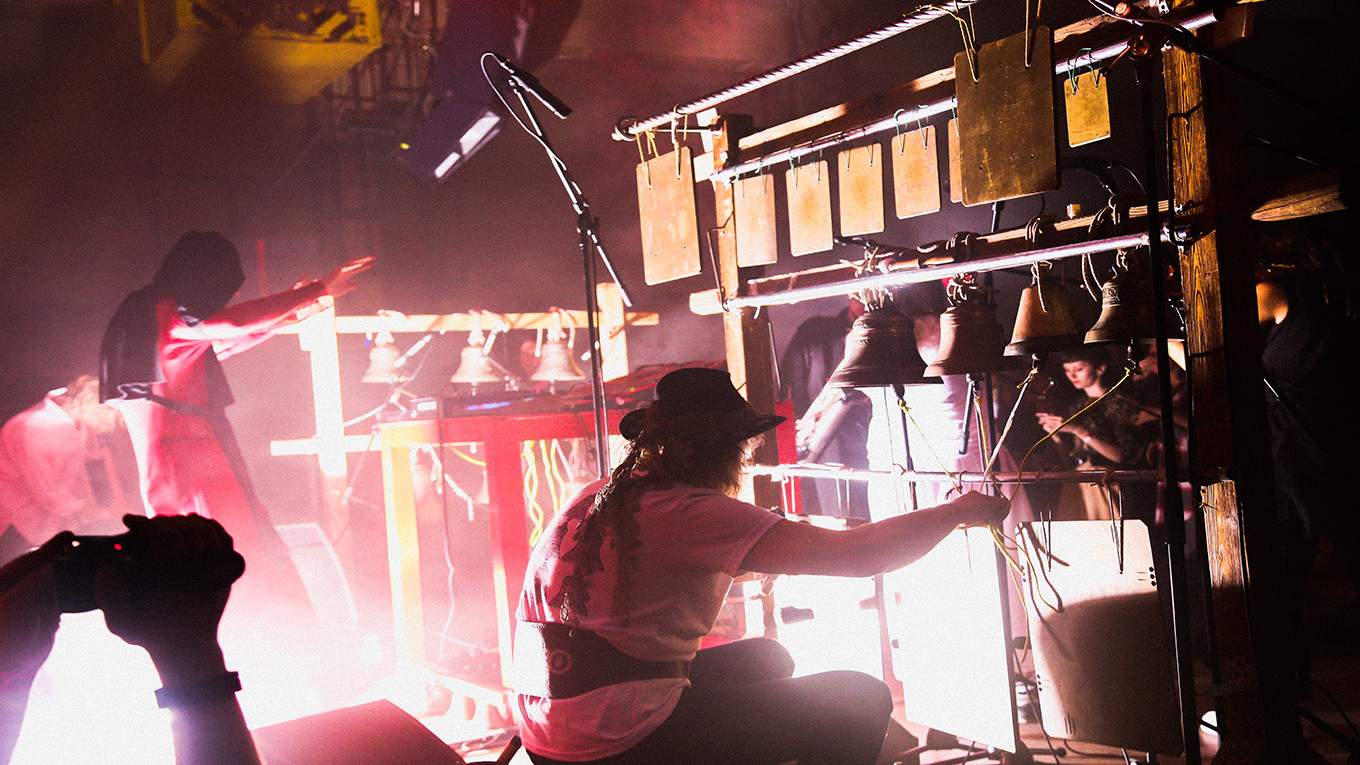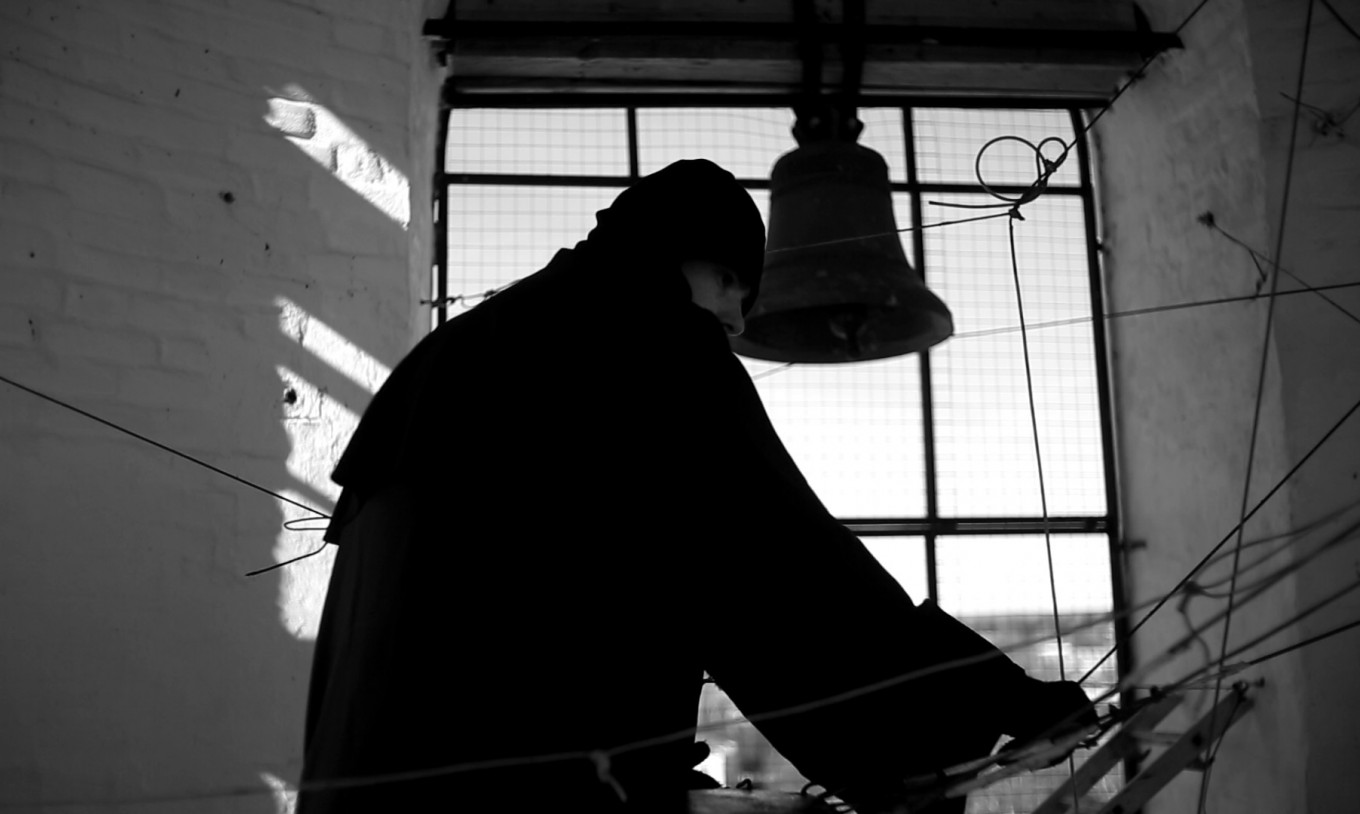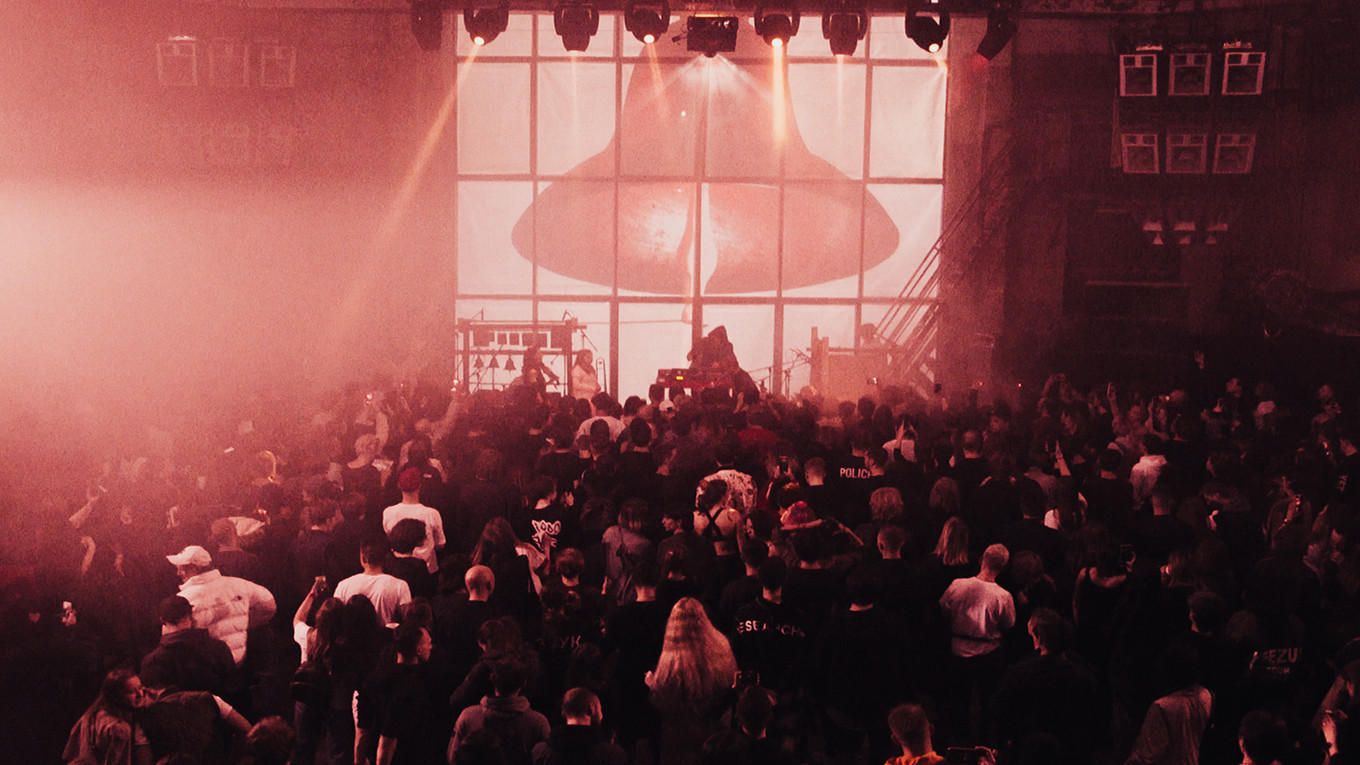Philipp Gorbachev is one of the first Russian electronic artists who became popular in the West. At the age of 30 he was at the peak of success, making a good living off his music. But one day he realized it wasn’t enough.
“I felt a need to live in a state of prayer,” he told The Moscow Times. “I’d gone as high as I could the way I was… I had started going to the church more. And one day I thought: ’I’m a musician, and there are bells here, but I don’t know anything about these instruments.’ It was Easter Sunday when anyone can ring a bell. So, I came to the church and started ringing.”
The church bell is a cornerstone of Russian culture. Bells jingled on troika rides and weddings. Big bells rang the alarm when fire broke out or an enemy came close to the gates. Bells warned of a blizzard, summoned people to a town meeting or to a church service. The last toll sounds during burial services and symbolizes the end of life.
And now church bells are ringing out at dancefloors with a new techno album called Kolokol (The Bell).
Bringing church bells to the dancing masses
Gorbachev premiered his new music this fall in a club called Mutabor in southeast Moscow.
The show started with a documentary about the artist's experience as a bell ringer, which won a special prize at this year’s Beat Film Festival. The short film presented Gorbachev's austere everyday work in a church in Nikolina Gora near Moscow where he had spent his childhood.
The dance floor was full. Young people watched the movie in bemusement. Some were visibly impatient for the rave to begin. But later it became clear that it was an integral part of the concept.
Gorbachev came out alone in an ascetic black-and-red robe with a hood covering his eyes. The stage was lit up only by the video map pinging flashing red and white squares against dark background behind the DJ booth. Gorbachev started playing the lead track from the album. The beat took off and young women started dancing as people shouted, “Come on! Bring it on!” Machines began to pump out fog. At first it was purely a techno set.
Then five other musicians came out with a guitar, violin, trombone, baritone saxophones and a DIY metal percussion setup of rail parts and scrap metal. Two bell ringers followed. Instruments started to join in one by one, and the sound grew louder and heavier. Gorbachev waved his arms like an orchestra conductor. At some point he left his DJ booth, took a bar with small bells attached and walked around the stage ringing together with the big bells. As they played, the text "A chime is the icon of time" ran across a screen in a loop. And then with one final blast and chime, it was over. The red lights were reflected on smartphone screens all through the packed club.
One of the musicians was perhaps Russia's most famous bell ringer, Alexander Chaika, who uses his own set of bells and symantrons – flat metal sheets used for services. The bell ringer at the Cathedral of Transfiguration in Volkhov, he mixes bells and symantrons to create what Gorbachev calls "symphochime." In the album and live show his melodic chiming on different instruments fills the spaces between notes like sealing foam. Roman, Alexander's son, rings the big symantron.
Gorbachev, the conductor, pulled it all into the modern context, connecting everything with the modern technologies of drum machines and video art.

A film in production
Now Gorbachev is shooting a new full-length documentary about bell culture in Russia. “’The Bell Marathon’ will be a film about Russia from the height of a bell tower,” Gorbachev said. It will focus on places like the Trinity Lavra of St. Sergius in Sergiev Posad, Rostov the Great, the Pskov Caves Monastery and other small towns and churches of Russia. The Ministry of Culture is sponsoring the project.
“Bell ringers find themselves in an interesting position. No one above them tells them how to ring the bells. They are the only people in our society who can allow themselves to do whatever they want according to their communication with God. I like music connected with spiritual service because bell chimes and church music play more often and louder than any other kind of live music in our country. It’s louder than music in bars and other entertainment areas,” Gorbachev said.

Church, state, music
The attitude towards the Church and religion is complicated in Russian society today. On the one hand, church attendance is up and people are drawn to venerate relics, like the more than one million pilgrims who visited the relics of St. Nicholas in Moscow’s Christ the Savior Cathedral in 2017. On the other hand, many people — even Orthodox believers — object to having the church thrust at them. For example, there were massive protests against church construction in a park in Yekaterinburg this spring. President Putin had to intervene and suggest a referendum in the city. After people voted against that site, the authorities had to change their plans. Other cities saw the same kind of protests this year.
“Russian society is in a difficult moment. I can’t say it’s united and homogeneous. I can’t say we’ve reached something superb and I can’t say we’re in an easy stage. But I think more and more people understand that saving themselves and the country depends not on orders from above, ideology and a national idea. It depends on what everyone does as a citizen, church-goer and child of God,” Gorbachev said.
Relying on religion as the foundation of an album for a broad audience is unusual for Russia. However, it’s not uncommon abroad. On the day of Kolokol’s premiere in Moscow Kanye West unexpectedly released his long-awaited “Jesus is King” album based on gospel music.
In Russia, so far the response from his peers is overwhelmingly positive. Mixmag UK named Kolokol Album of the Month, and the music found a strong supporter in artist Pavel Pepperstein, whose most recent exhibition The Human as a Frame for the Landscape was held at the Garage Museum of Contemporary Art this spring. He has been following Gorbachev's activity since the track “Ivan, Come on, Unlock the Box!” came out in 2016 and came to the premiere of Kolokol.
“I am a great fan of Philipp's art and the idea of weaving the bell chime into the rave culture,” Pepperstein told The Moscow Times. “The sound of the bell has always echoed in our culture, and now it has finally entered it. Maybe we’ll get an Orthodox revival of the rave.”
A Message from The Moscow Times:
Dear readers,
We are facing unprecedented challenges. Russia's Prosecutor General's Office has designated The Moscow Times as an "undesirable" organization, criminalizing our work and putting our staff at risk of prosecution. This follows our earlier unjust labeling as a "foreign agent."
These actions are direct attempts to silence independent journalism in Russia. The authorities claim our work "discredits the decisions of the Russian leadership." We see things differently: we strive to provide accurate, unbiased reporting on Russia.
We, the journalists of The Moscow Times, refuse to be silenced. But to continue our work, we need your help.
Your support, no matter how small, makes a world of difference. If you can, please support us monthly starting from just $2. It's quick to set up, and every contribution makes a significant impact.
By supporting The Moscow Times, you're defending open, independent journalism in the face of repression. Thank you for standing with us.
Remind me later.






